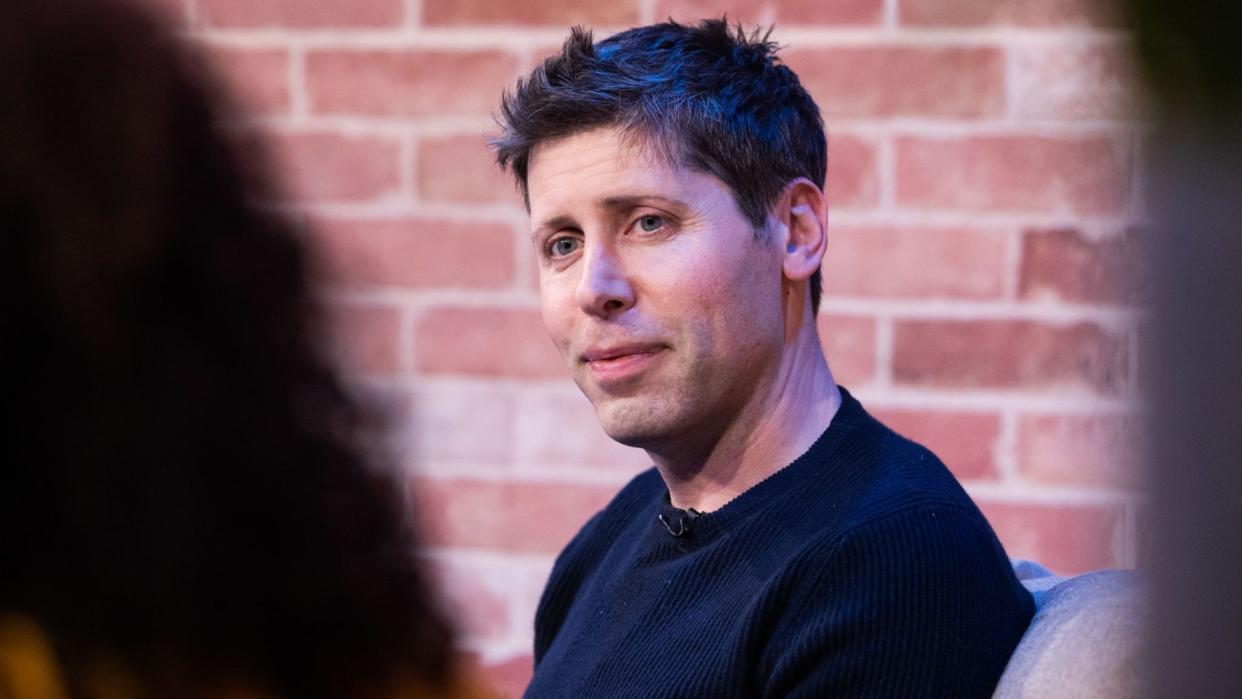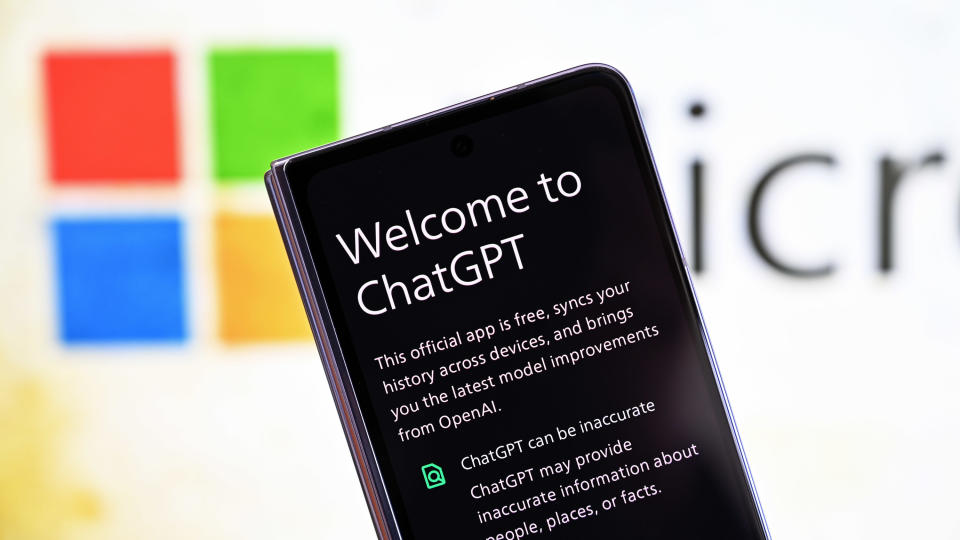OpenAI CEO Sam Altman's "magical" GPT-4o felt more like routine Microsoft Copilot updates paired with a snub for Windows

- Oops!Something went wrong.Please try again later.
The past few weeks have been rife with speculations and rumors about OpenAI's just-concluded Spring update event. Frankly, it was impossible for us to tell what was in store for us from the ChatGPT creator, as it usually does a great job of keeping things under wraps.
So, we didn't get an AI-powered search engine to compete with Google and Bing or GPT-5 to succeed the "mildly embarrassing at best" GPT-4 model. In the past, OpenAI CEO Sam Altman admitted GPT-4 "kind of sucks" and promised it's the "dumbest model" we'll ever have to use. A top OpenAI executive reiterated these sentiments last week, citing today's ChatGPT will seem "laughably bad" in the next 12 months.
Over the weekend, Sam Altman took to his X (formerly Twitter) account to set the record straight. While vague, Altman confirmed that the company has been hard at work and is gearing up to ship new stuff that "feels like magic" to him. He added that he thinks users would love it too.
Is GPT-4o really so magical?
Perhaps the most interesting bit of OpenAI's just-concluded event is the new GPT-4o model. I'm not sure about the magical bit, though. The flagship model can reason across audio, vision, and text in real time, making interactions with ChatGPT more intuitive.
I've watched a ton of demos since the ChatGPT maker unveiled the new flagship model. Don't get me wrong, it's quite impressive but not magical or groundbreaking as hyped before its debut. GPT-4o didn't live up to the hype leading up to the event.
I found the real-time translation feature quite interesting and helpful, but it already exists in the wild. GPT-4o's live translation demo during OpenAI's Spring update is reminiscent of Samsung's Live Translate feature in its S24 lineup of flagship devices. It's essentially a personal translator incorporated into your phone to foster multilingual communication in real time.
As such, it allows users to communicate with anyone and relay accurate responses without necessarily knowing or speaking the language they are using on their end. What's more, the feature displays a live chat interface where you get real-time translations of the information being passed on to you while on a call. It also translates your response to the language the caller is using for efficient and effective communication.
We're still in the early stages of GPT-4o's release, which means there's a likelihood it will get better or even "magical" in the not-so-distant future via new updates and features.
Exclusive MacOS app brews more trouble for Microsoft and OpenAI's complicated partnership

Before the event, I had a conversation about OpenAI, speculating what the company would potentially announce. My first guess was that the company would make its GPT-4 model accessible to everyone, including ChatGPT free users.
Besides, broadly availing AI services freely to everyone is part of its founding mission. As you may know, Billionaire Elon Musk filed a lawsuit against OpenAI and its CEO, Sam Altman, over a "stark betrayal" of the company's founding mission. He added that the hot startup is now a closed-source, de facto subsidiary of Microsoft. Microsoft Insiders seem to share the same sentiments, having previously indicated that the Redmond giant is a glorified IT department for the hot startup.
This is ironic, especially after OpenAI announced that it will launch its ChatGPT app to Mac users. You'd think Microsoft's multi-billion dollar investment in OpenAI and its technology would've helped it secure a shotgun seat in such a scenario. OpenAI indicated that it's prioritizing Mac over Windows because that's where its users are.
Microsoft and OpenAI have a rather complicated partnership and have been in a back and forth for the past few months, despite the former having a 49% stake in the earnings of OpenAI's for-profit arm. Interestingly, Microsoft CEO Satya Nadella has openly admitted that OpenAI wouldn't have existed without its early support, further citing:
"We were very confident in our own ability. We have all the IP rights and all the capability. I mean, look, if tomorrow OpenAI disappeared, I don’t want any customer of ours to be worried about it, quite honestly, because we have all of the rights to continue the innovation, not just to serve the products. But we can go and just do what we were doing in partnership, ourselves, and so we have the people, we have the compute, we have the data, we have everything."
Microsoft's Windows 11 already ships with access to Copilot, which is powered by the same technology as ChatGPT. In case you missed it, Microsoft launched a Copilot app for mobile users at the beginning of the year with support for OpenAI's GPT-4 model and DALL-E 3 image generation technology.

Interestingly, OpenAI has buried these features under its $20 ChatGPT Plus subscription, while Microsoft allowed everyone to access them freely via its new app on iOS and Android. However, OpenAI still managed to dominate the mobile landscape per a report by Appfigures.
There's no indication when OpenAI plans to ship its native ChatGPT app to Windows users. However, it will likely be soon. It's also possible that Microsoft will integrate the new GPT-4o model into Copilot AI.
OpenAI snubbing Windows 11 and debuting a native ChatGPT for Mac users has sparked a hot social-media debate. Based on the comments from concerned users on our post about the topic in X, some seem to think that OpenAI developed the native app for Mac users because Microsoft will probably take the lead on the Windows side. Another user indicated, "Meh... Microsoft will have GPT-4o within days in Copilot. OpenAI wants to get into Macs and iPhones to beat Google Gemini from doing it. In the end, Microsoft wins anyway with Azure. That's where Microsoft makes most of their money now."
In my opinion, the event felt more like the early days of 2023 when Microsoft had just launched Microsoft Copilot (formerly Bing Chat) and would publish weekly blog posts highlighting new updates and features shipping to the service.

